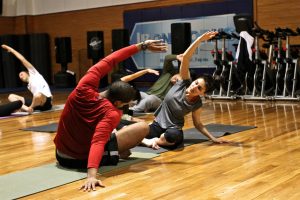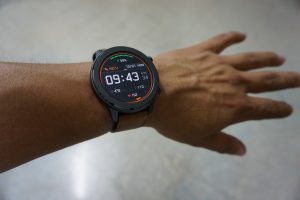Should You Get a Triathlon Coach? A Comprehensive Guide to Making the Right Choice
Deciding whether to hire a triathlon coach is a significant consideration that depends on your goals, experience, budget, and personal preferences. A coach can provide tailored guidance, support, and expertise to help you reach your full potential, but it’s important to weigh the pros and cons before making a commitment. In this post, we’ll explore the various factors to consider when deciding whether a coach is right for you, the different types of coaching available, how to choose the best coach for your needs, and how this decision can impact your overall triathlon journey.
1. Key Factors to Consider When Thinking About a Coach
Motivation and Accountability: A coach can be a great motivator, offering encouragement and keeping you on track when training gets tough. If you struggle with consistency, a coach’s structured support and regular check-ins can help keep you accountable and committed to your goals.
Discipline and Structure: A well-designed training plan created by a coach can ensure you’re training effectively, balancing intensity, and including recovery. This structure can help prevent overtraining and reduce the risk of injury by focusing on purposeful, progressive workouts that align with your abilities.
Feedback and Personalized Guidance: A coach provides real-time feedback based on your performance, helping you adjust your technique, pacing, and effort levels. This immediate feedback can be invaluable for growth and improvement, especially if you’re working on specific weaknesses in one or more disciplines.
Racing Goals and Specific Targets: Whether you’re aiming to complete your first triathlon or qualify for a high-stakes race like an Ironman, a coach can create a clear path to achieve your goals. They can help you set realistic targets, manage race-day expectations, and tailor your training for specific race distances or conditions.
Program Flexibility and Adjustments: One major advantage of having a coach is that your program can be adjusted based on your progress, fatigue levels, or unexpected life events. A flexible plan means you don’t need to worry about rearranging workouts if something unexpected comes up.
Expertise and Experience: A certified, experienced coach has the knowledge to develop a smart, efficient plan that incorporates the latest training techniques and considers your strengths and weaknesses. For athletes focused on improvement, the expertise of a coach can be invaluable.
2. Types of Triathlon Coaches
The coaching landscape is diverse, offering options for athletes at all levels and with varying preferences. Here are common types of triathlon coaches:
- Personal or 1-on-1 Coach: Offers individualised attention with in-depth feedback and tailored programming. Personal coaches work closely with you to create a detailed plan aligned with your goals, lifestyle, and fitness levels.
- Remote/Online Coach: Uses digital platforms to communicate, share training plans, and track progress. This setup is popular due to flexibility and often lower costs than in-person coaching.
- Group or Club Coach: Coaches within a triathlon club lead group sessions and provide general guidance. This option is cost-effective and encourages camaraderie but lacks the individualisation of a personal coach.
- Event-Specific Coaches: Event-specific coaches focus on helping you peak for a particular race. They may provide specific training for race conditions and distance-specific preparation, such as an Ironman or Olympic triathlon.
Pros and Cons of Each:
- Personal Coach: High personalization and accountability but often more expensive.
- Remote Coach: Convenient and flexible, with moderate costs, but lacks in-person interaction.
- Group/Club Coach: Budget-friendly with social benefits but offers less individualized attention.
- Event-Specific Coach: Focused approach for specific races but may lack long-term planning support.
3. Choosing a Coach That Works for You
Selecting the right coach is about finding someone whose expertise aligns with your goals, training style, and personality.
Identify Your Needs and Goals: Consider what you hope to achieve with a coach. Are you seeking race-specific guidance, injury prevention, or technique improvement? Clarifying your goals helps you find a coach with the relevant expertise.
Decide on the Type of Relationship: Some athletes prefer close, hands-on relationships with frequent check-ins, while others are comfortable with more occasional guidance. Think about whether you want a mentor-like relationship or more structured feedback.
Remote vs. Face-to-Face: Remote coaching provides flexibility, often with a digital platform for workout tracking and analysis. Face-to-face coaching allows for real-time feedback and in-person interaction, which can be especially beneficial for technical improvements like swim stroke analysis.
Compatibility and Communication Style: A coach’s communication style is crucial. Look for a coach who is supportive, clear, and who listens to your needs. Compatibility matters—an effective coach-athlete relationship is built on trust and open communication.
4. Impact of a Coach on Your Current Training and Social Aspects
Impact on Current Training: A coach will likely adjust your current training to ensure it aligns with your goals and fitness levels. Expect your plan to be more structured, with specific workouts tailored to address weaknesses or improve efficiency. This can initially feel like a big change, but it often leads to more focused training and faster progress.
Social Training and Group Sessions: If you enjoy training with friends or in a club, consider whether a coach can integrate group sessions into your plan. Some coaches encourage social workouts as a way to build motivation, while others may prefer solo workouts to focus on individual progress.
Club Training and Coach Integration: Many triathletes train with clubs and may wonder if they can still participate with a personal coach. The answer depends on the coach and the club’s structure, but many coaches will work around club training sessions or coordinate with club coaches to supplement group activities.
5. Financial Investment: Cost of Coaching
Coaching costs can vary significantly depending on the coach’s experience, certifications, and the level of service provided.
Personal Coaches: Typically charge between £100 to £300+ per month. Higher fees often include more frequent communication, regular feedback, and adjustments based on your performance.
Remote or Online Coaches: Generally more affordable, with fees ranging from £50 to £150 per month. These coaches communicate via email, phone, or training platforms.
Club Coaches: Club coaching fees are often included in club membership or offered at a lower rate than personal coaching, making it a budget-friendly choice with basic guidance.
Event-Specific Coaches: Prices vary depending on the duration and intensity of the coaching but are usually comparable to personal coaching.
6. Developing Your Own Plan vs. Using a Coach vs. Buying an Off-the-Shelf Plan
Each approach to training has its benefits, depending on your needs, experience, and goals.
Developing Your Own Plan:
- Pros: Completely tailored to your schedule, cost-free (or low cost), and offers flexibility. Ideal for experienced athletes who enjoy planning.
- Cons: Requires a solid understanding of training principles; it can be challenging to assess your own weaknesses and progress objectively.
Using a Coach:
- Pros: Offers personalised guidance, accountability, and expert insights. Provides ongoing adjustments based on your performance and progress.
- Cons: More expensive than self-guided or off-the-shelf options.
Buying an Off-the-Shelf Plan:
- Pros: Budget-friendly and offers structure with pre-designed workouts for specific race distances and goals. Suitable for athletes who need basic guidance without a full coaching commitment.
- Cons: Lacks customisation; doesn’t account for individual fitness levels or lifestyle changes.
7. How to Find a Coach
Finding a coach who suits your needs involves a combination of research and asking the right questions.
Ask for Recommendations: Fellow triathletes or club members can often recommend coaches they’ve worked with. This is a great way to find someone who has a track record of success and a positive reputation.
Search Online Directories: Websites like British Triathlon and TrainingPeaks offer directories of certified coaches, complete with bios, experience, and certifications.
Attend Local Training Camps or Workshops: Many coaches host training camps or workshops, which offer the chance to meet them, understand their style, and see if their approach aligns with your goals.
8. Questions to Ask a Coach to Determine Compatibility
Before committing to a coach, it’s important to interview them to ensure they’re the right fit for your needs. Here are some useful questions:
- What is your coaching philosophy? Understanding their approach to training can help you gauge if their style aligns with your goals.
- How do you handle injuries or setbacks? A good coach should prioritize health and be prepared to adapt your training plan as needed.
- How often will we communicate, and through what methods? Clarifying expectations around communication frequency and methods (phone, email, app) helps avoid misunderstandings.
- What is your experience working with athletes at my level? Look for a coach experienced in working with athletes at your level, whether you’re a beginner or aiming for elite competition.
- How do you measure and adjust progress? Knowing their approach to monitoring and adjusting training helps you understand how they’ll guide your development.
- Can you work around my schedule and other commitments? A flexible coach who respects your life outside of triathlon is key to a sustainable training relationship.
9. Pros and Cons of Having a Coach
Pros of Having a Coach:
- Structure and Accountability: A coach provides a tailored plan, accountability, and regular check-ins to keep you motivated.
- Expertise and Real-Time Feedback: Coaches bring specialised knowledge to guide you through challenging moments, helping you stay on track and avoid injury.
- Adaptability: Coaches can modify your plan based on performance, fitness levels, or personal commitments.
- Race Preparation and Support: A coach can help you with race-day strategy, pacing, and mental preparation, building confidence and readiness.
Cons of Having a Coach:
- Cost: Personal coaching can be a financial investment, which may not be feasible for everyone.
- Time Commitment: Working with a coach often requires adherence to a structured plan, which might limit flexibility for social training or club sessions.
- Compatibility Issues: Not every coach is the right fit, and finding someone who aligns with your goals and communication style may take time.
Final Thoughts on Hiring a Triathlon Coach
The decision to hire a coach depends on your goals, budget, and desire for structured, personalised training. A coach can provide a tremendous advantage, offering expert guidance, support, and motivation as you work toward your triathlon goals. However, it’s essential to find someone who understands your needs, offers flexibility, and helps foster your growth in a way that aligns with your lifestyle. Whether you choose to work with a coach, follow an off-the-shelf plan, or develop your own training, what matters most is a commitment to continuous improvement, self-awareness, and enjoying the journey.



